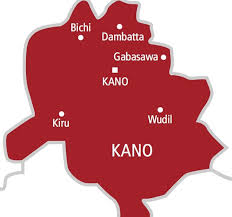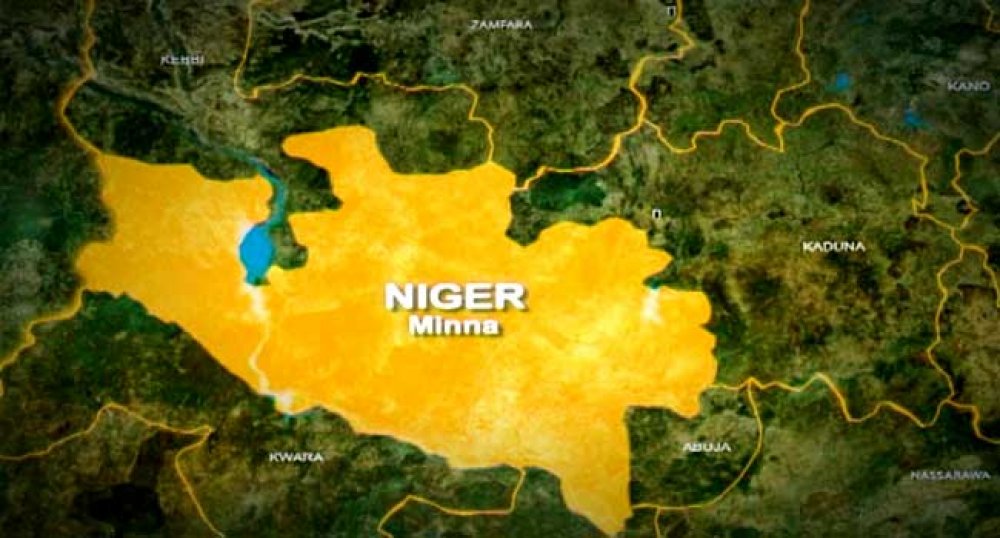NEWS
BREAKING: UK Goes Hard on Nigerian Students Bringing Family Over

In keeping with media speculations, the United Kingdom (UK) has formally put legal measures in place to control the way foreign students, including Nigerians bring over family members as dependants.
Biztellers had reported that “Speculations are rife that exodus of foreign students to the United Kingdom (UK) is set to attract stringent regulations with only those enrolled for PHD likely to continue enjoying the privilege of bringing families over.”
The UK government, on Tuesday, as widely anticipated made her stand on the issue public by unveiling legal measures with which she hopes to take a firm grip and control the high influx of foreigners, migrating as dependents to students, reported to stand at over a million presently.
With the new legislation, it would no longer be tenable for international students to switch out of the student route and into work routes before the completion of the course of study, so as to guard against misuse of the visa system.
Biztellers gathered that “there will also be a review of the maintenance requirement for students and dependants in addition to a crackdown on “unscrupulous” education agents “who make use of inappropriate applications to sell immigration, not education”, according to Sky News.
The new regulations come into force by January 2024 so as to make room for students starting courses in the UK time to plan to adapt to the new realities.
Home Secretary, Suella Braverman, in a statement on Tuesday, pointed out that recent immigration figures had shown an “unexpected rise” in the number of dependants moving into the UK together with international students.
Braverman also noted that the increase was made after the government made clear her commitment to lower net migration.
The UK government is fully aware of the economic impact of international students, according to Braverman but would not be singularly focused on that “at the expense of our commitment to the public to lower overall migration”.
This position, Sky News further reports is why the government took pains to strike a balance between acting decisively on tackling net migration and protecting the economic benefits that students can bring to the UK.
The UK’s Home Office has taken to its official site to express optimism that the “New government restrictions to student visa routes will substantially cut net migration by restricting the ability for international students to bring family members on all but post-graduate research routes and banning people from using a student visa as a backdoor route to work in the UK.
It stated, “The ONS estimated that net migration was over 500,000 from June 2021 to June 2022. Although partly attributed to the rise in temporary factors, such as the UK’s Ukraine and Hong Kong schemes, last year almost half a million student visas were issued while the number of dependants of overseas students has increased by 750% since 2019, to 136,000 people.”
The Home Office also noted that this new rule is not at the expense of the government’s commitment to the public to lower overall migration and ensure that migration to the UK is highly skilled and provides the most benefit.
According to them, the proposal is aimed at allowing “the government to continue to meet its International Education Strategy commitments while making a tangible contribution to reducing net migration to sustainable levels. The government has also made clear that the terms of the graduate route remain unchanged.”
The Home Office also made it clear that “the proposals announced today do not detract from the success of the government’s International Education Strategy, including meeting the target to host 600,000 international higher education students studying in the UK each year by 2030, for two years running.”
Official statistics, which are due to be published this week, are expected to show that net migration has increased from 504,000 in the 12 months to June 2022 to more than 700,000 in the year to December, Sky News said.
According to data, foreign students brought 135,788 family members to Britain last year – nine times more than in 2019 while in 2022, 59,053 Nigerian students brought over 60,923 relatives.
NEWS
Kano Businessman’s Daughter Kidnapped After ₦8m Ransom Payment

In a shocking incident on Sunday morning, unknown gunmen suspected to be kidnappers invaded the home of Alhaji Auwal, a prominent businessman, in Garo Town, Kabo Local Government Area of Kano State.
The gunmen, estimated to be around 10 in number, forced their way into the residence, breaking down a door to gain entry.
An anonymous source revealed that the attackers were heavily armed, with three carrying firearms and the rest wielding other weapons.
READ MORE: Tinubu Urges Stakeholders To Join Forces To Restart Oil Production In Ogoniland
They quickly gathered the entire family in one room, instilling fear and panic in the household.
According to the source, Alhaji Auwal pleaded with the assailants to spare his family and agreed to meet their demands.
The kidnappers, who were determined to extort money, received ₦8 million from the family.
Despite this payment, the gunmen took the businessman’s eldest daughter, Zainab, a secondary school graduate, before fleeing the scene.
The whereabouts of Zainab remain unknown, and as of now, the kidnappers have not contacted the family.
This abduction comes just 48 hours after the tragic kidnapping and subsequent murder of former Gombe State Permanent Secretary, Atiku Mu’azu, who was killed by gunmen after a ₦10 million ransom was paid.
The two incidents have left the residents of Kano in shock and fear, prompting calls for increased security measures in the area.
Attempts to reach the spokesperson for the Kano Police Command, SP Abdullahi Haruna, for comment were unsuccessful as his phone remained unreachable.
Authorities have yet to make any official statements regarding the investigation.
International News
Colombia Blocks US Deportation Flights Over Migrant Treatment

In a bold move, Colombian President Gustavo Petro declared on Sunday that he would not allow US deportation flights carrying Colombian migrants to access his country’s airspace.
The left-wing leader took to X (formerly Twitter) to express his strong stance, stating, “The United States cannot treat Colombian migrants as criminals. I forbid entry to our territory to US planes carrying Colombian migrants.”
Petro made it clear that such flights would only be accepted once Washington established a protocol to ensure the “dignified treatment” of deported migrants.
READ MORE: How Trump Plans To Grow American Economy By $1 Trillion Daily
The president later confirmed in a separate post that he had already turned back US military planes that were en route with Colombian migrants on board, although he did not provide further specifics on the matter.
While AFP sought confirmation from US authorities regarding the blockade of deportation flights, no immediate response was forthcoming.
Petro’s statements come just a day after Brazil’s government voiced similar outrage over the treatment of deported Brazilians.
Brazil condemned the US administration under President Donald Trump, citing instances where Brazilian migrants were deported while handcuffed on flights, describing it as a “flagrant disregard” for their basic rights.
In his remarks, Petro emphasized that he would be open to allowing civilian US flights to transport deported migrants as long as they were not subjected to treatment “like criminals,” signaling a broader call for humane treatment of migrants under international deportation policies.
NEWS
Four Dead, Many Injured As Explosion Rocks Niger State Mining Site

An explosion at a mining site in Sabon Pegi, Mashegun Local Government Area of Niger State, claimed the lives of four individuals and left several others injured on Sunday morning.
The blast occurred as miners resumed operations, sending shockwaves through the community.
While the exact cause of the explosion remains undetermined, local residents have pointed to the poor handling of explosive devices by mining companies as a possible factor.
READ MORE: Thisday Awards: Diana Ross Arrives In Nigeria
The incident has sparked concerns about safety practices within the mining sector.
Community sources confirmed the recovery of four bodies, but authorities fear the death toll could rise.
Investigations are ongoing to establish the cause of the blast and assess the full extent of the damage.
One resident, Aminu, described the chaos that followed the explosion. “The sound was so loud that many of us thought it came from the hydroelectricity dam nearby. People panicked and ran into the bush for safety,” he recounted.
Another community member highlighted the potential role of mining operations in the tragedy.
“Mining companies here frequently use explosives during their activities, and this seems like an operational issue, not something related to terrorism,” the resident said, dismissing concerns about a security threat in the area.
As of the time of reporting, neither the state government nor security agencies have released an official statement regarding the explosion.
























